Key takeaways:
- The Attorney General’s role emphasizes justice, transparency, and community engagement to uphold citizens’ rights.
- Infusing campaigns with core values like integrity and empathy fosters trust and meaningful connections with constituents.
- Commitment to justice and equity necessitates actively listening to affected communities and advocating for reforms based on their experiences.
- Community engagement involves building relationships and creating participatory opportunities to empower residents and foster trust in the legal system.
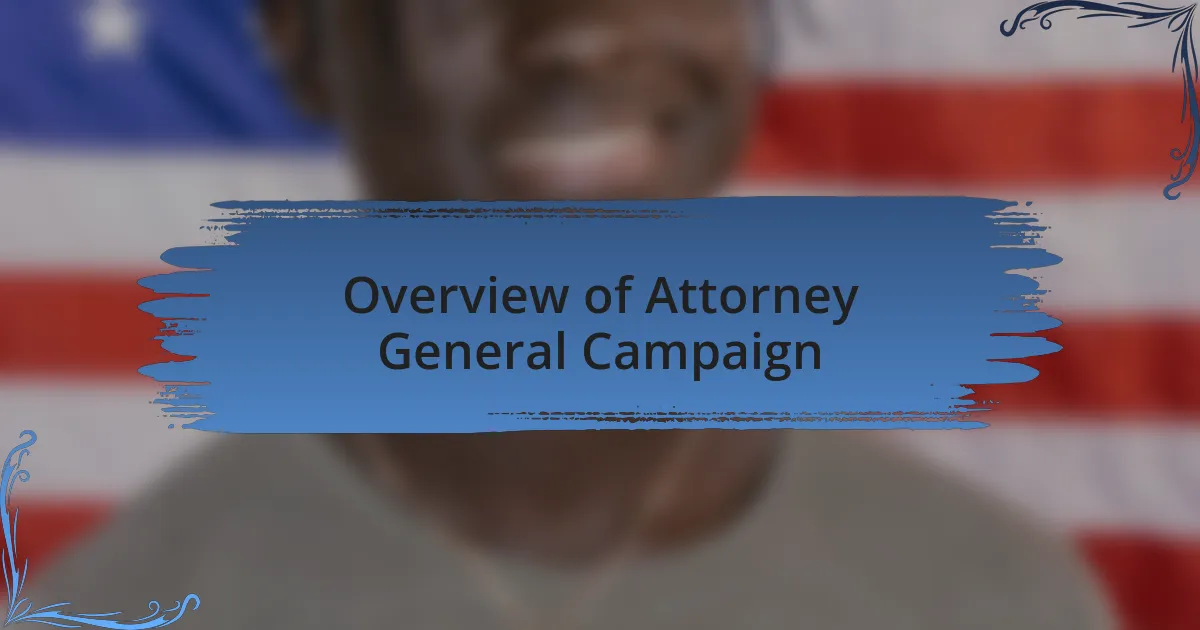
Overview of Attorney General Campaign
The role of the Attorney General is pivotal, serving as the chief legal officer for the state. This position carries the weight of ensuring that justice is upheld and the rule of law is maintained. In my view, it’s about more than just enforcing laws; it’s about championing the rights of citizens and being a voice for those who often feel unheard.
During my campaign, I’ve encountered many individuals who have shared their stories of struggle, highlighting the real-life implications of legal decisions and policies. These conversations remind me that every case represents a person, a family, or a community needing support. How can we ensure that every voice is heard in our legal system? I believe it’s through transparency, accessibility, and commitment.
As I think about the mission of the Attorney General, I envision a collaborative effort among various stakeholders. It’s crucial to engage with community leaders, legal experts, and residents to understand their needs better. This collaborative approach is not just a strategy; it’s a necessity to foster trust and create effective legal frameworks that serve everyone equitably. What other way is there to truly prevail in the pursuit of justice than to listen and engage deeply with those we represent?
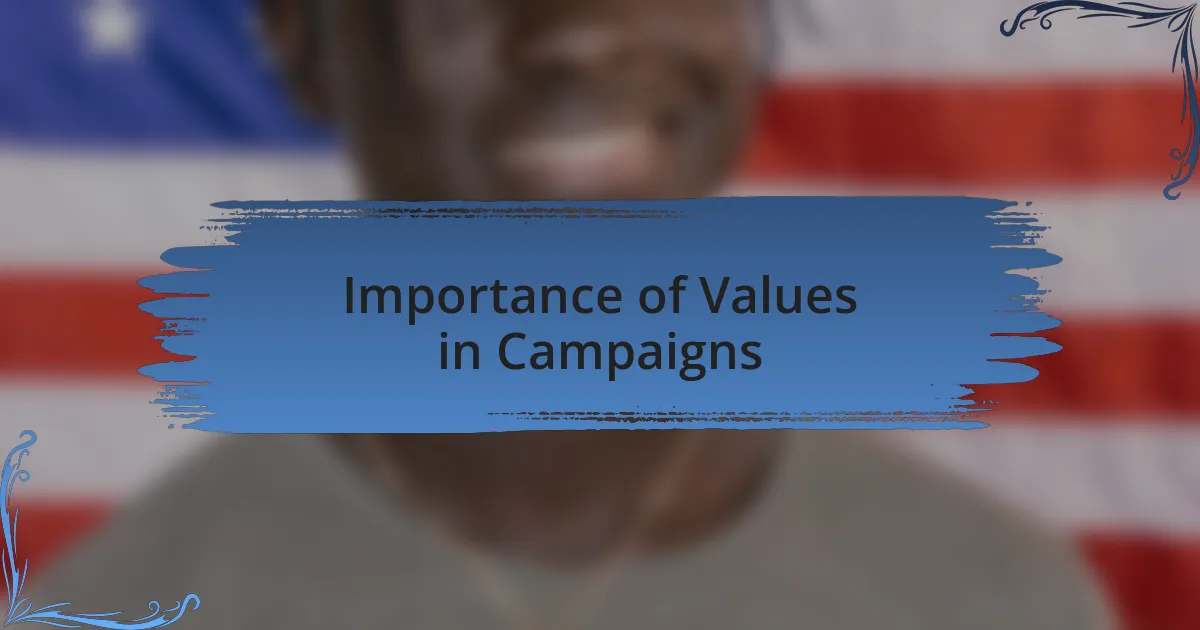
Importance of Values in Campaigns
Values are the cornerstone of any effective campaign, shaping the narrative and guiding decision-making processes. I remember a time when I spoke to a community group facing a legal issue. Their distress was palpable, and it was clear that they needed not just a solution but a campaign built on empathy and understanding. This moment solidified my belief that values, such as integrity and compassion, must drive every aspect of our legal system and campaign.
Without a strong foundation of values, campaigns risk becoming hollow. I often reflect on the importance of honesty, especially when engaging with constituents. When I share my vision, I strive to convey not just what I will achieve, but why it matters. How can we ask for support without establishing a deep-rooted sense of trust? This is why articulating clear values resonates with voters; it fosters genuine connections and builds a community invested in mutual advocacy.
Moreover, values can set a campaign apart in a crowded political landscape. During my outreach efforts, I’ve encountered many candidates who prioritize flashy slogans over fundamental principles. But what lasting impact can come from that approach? Drawing from my own experiences, I find that campaigns rooted in shared values invite engaged discussions and inspire communities to rally together for justice and equality. Values are not just slogans; they are the promises I intend to uphold.
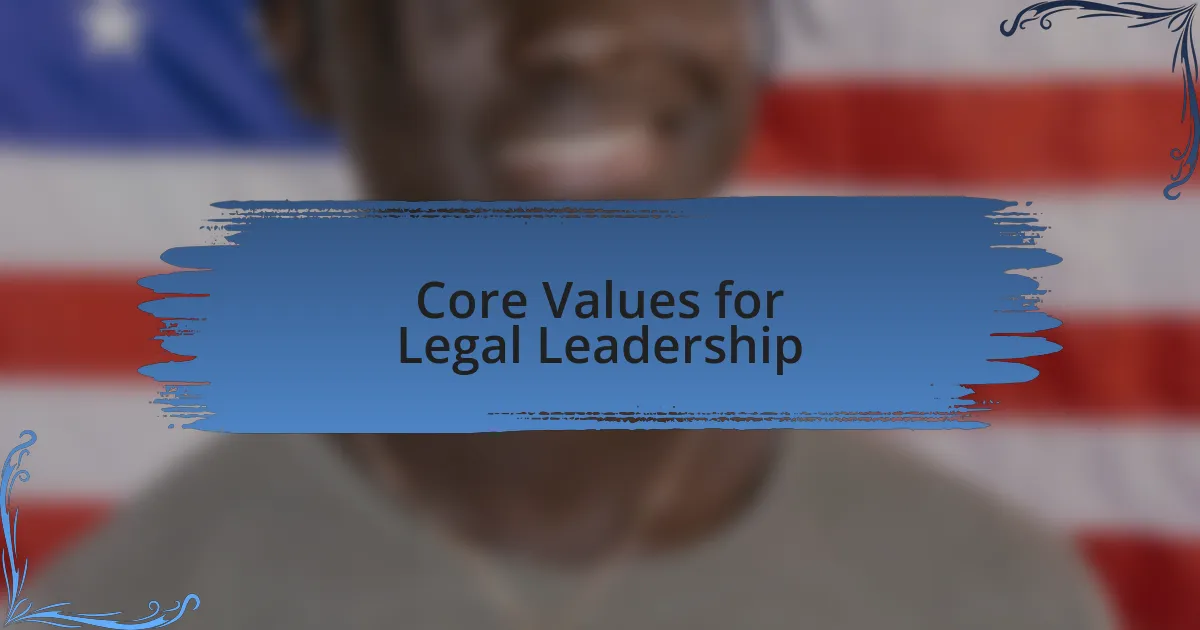
Core Values for Legal Leadership
Core values play a vital role in legal leadership, especially in fostering a sense of accountability. I recall a meeting with a local legal aid organization where we discussed transparency in legal proceedings. It struck me how crucial it is for leaders to maintain open lines of communication, not just with their teams but also with the public. When constituents understand the decision-making process, trust flourishes, making them more likely to support and engage with legal initiatives.
Moreover, I believe that empathy is essential in our interactions. I once represented a family struggling with eviction. Their fears were not just about losing their home but about what that meant for their future. It reminded me that legal leadership requires more than just knowledge of the law; it demands a deep understanding of the human experience behind each case. How can we, as leaders, advocate effectively if we don’t acknowledge the personal stories that shape the legal landscape?
Finally, a commitment to justice must underpin every decision. I often reflect on a time when I had to make a tough call that favored the community over potential political gain. It was a difficult choice, but the relief on the faces of those I was helping reaffirmed my resolve. In moments like that, I realize that true legal leadership is not about popularity; it’s about doing what is right, even when it’s challenging. Isn’t that the essence of the values we need to uphold?
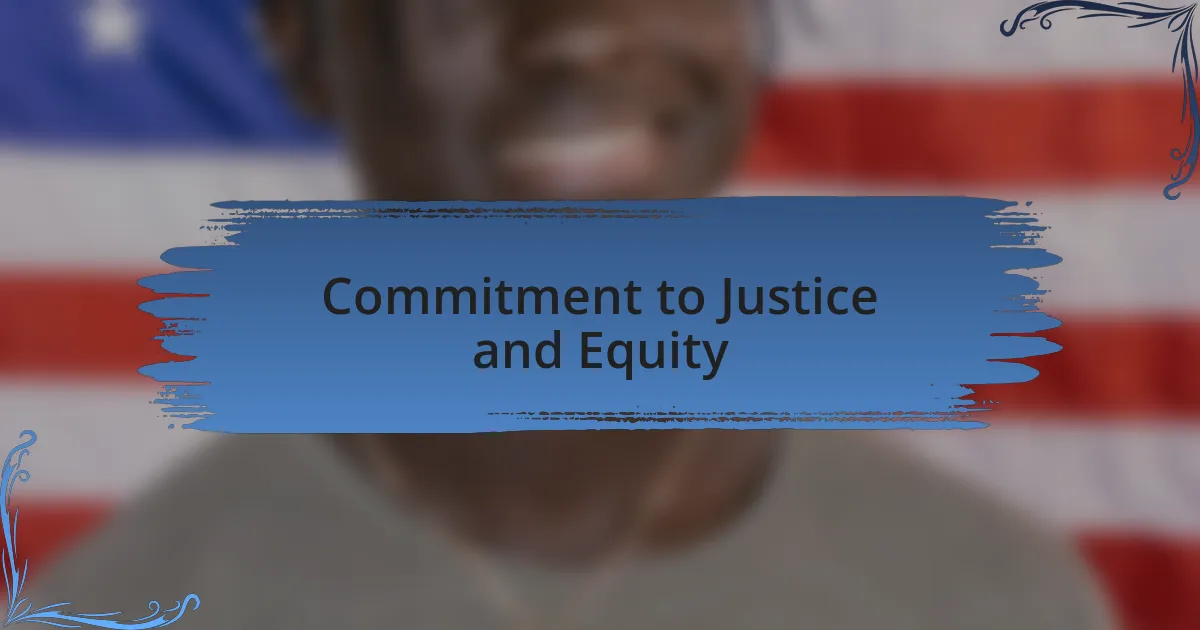
Commitment to Justice and Equity
Commitment to Justice and Equity
Justice and equity are the cornerstones of my vision for a fair legal system. I remember a case where a young man was unfairly charged due to a lack of resources, and it broke my heart to see how systemic issues piled on his struggles. This experience fueled my determination to ensure that everyone has access to fair representation, regardless of their background or financial means.
In promoting equity, I’ve found that it’s crucial to listen actively to the communities most affected by the law. On one occasion, I hosted a forum where residents voiced their concerns about discriminatory practices in policing. Their raw emotions and testimonials that day were eye-opening, pushing me to advocate for reforms that address these biases. How can we move toward a just society if we don’t listen to those directly impacted?
Furthermore, the difficult discussions around equity often lead to transformative change. There was a time I spearheaded an initiative focusing on restorative justice, aiming to heal rather than punish. Witnessing offenders take responsibility and make amends offered me a powerful insight: real justice is about restoring balance rather than simply enforcing punishment. Isn’t it time we embraced a more compassionate approach in our pursuit of justice?
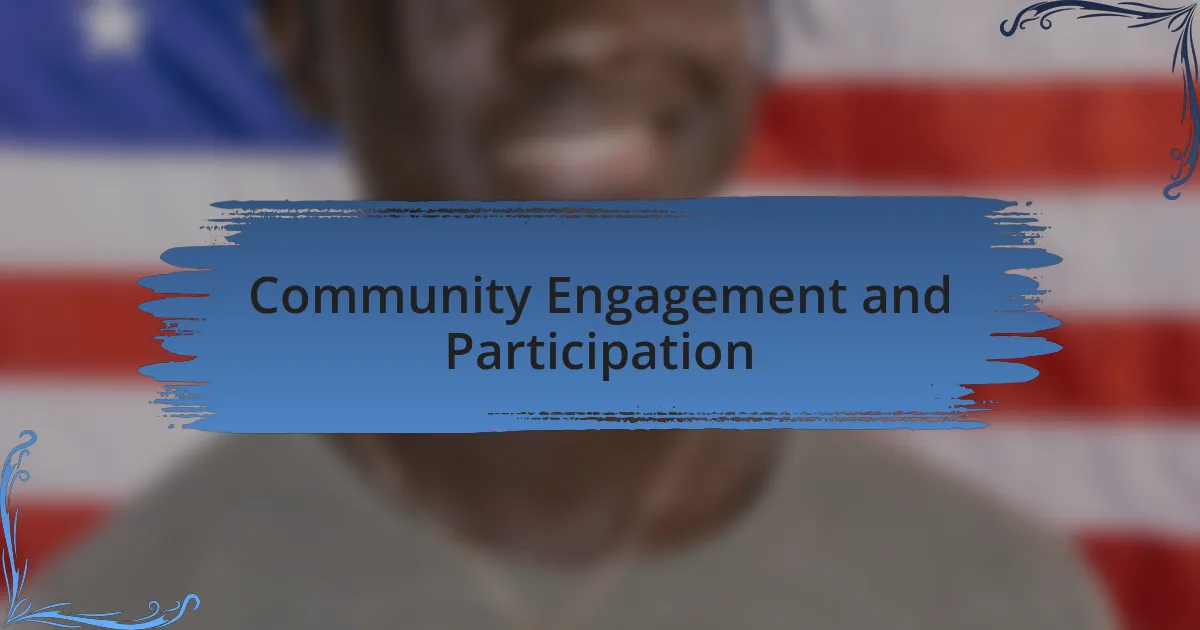
Community Engagement and Participation
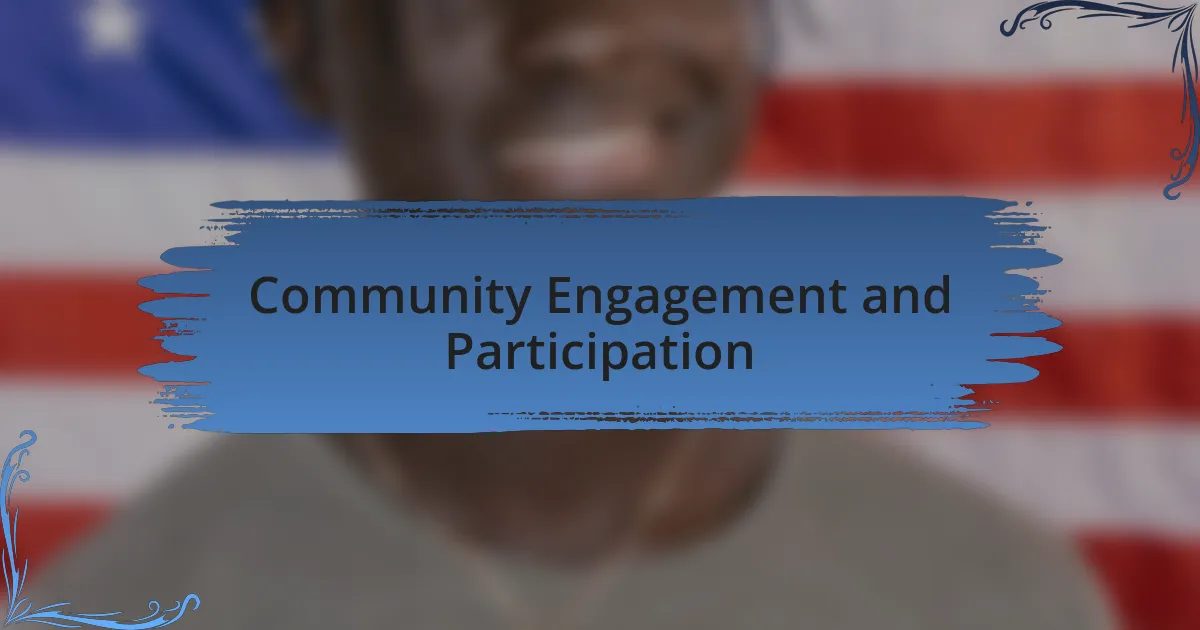
Community Engagement and Participation
Community Engagement and Participation
For me, true community engagement means building relationships. I vividly recall an event where I set up a booth in a local park to chat with residents. They shared their stories and concerns, and each conversation deepened my understanding of the unique challenges we face as a community. Isn’t it amazing how such simple interactions can spark a deeper commitment to justice?
Creating opportunities for participation is vital. I initiated a mentorship program that paired residents with legal professionals, designed to demystify the legal process. Watching the transformation in both mentees and mentors reminded me of the power of collaboration. How can we expect people to trust the system if they don’t see themselves in it?
Moreover, I believe in the collective wisdom of our community. One memorable experience was during a neighborhood cleanup where we not only beautified our environment but also strengthened bonds. People left feeling empowered, knowing their voices matter and that they can take action for change. Isn’t it inspiring to think about the impact we can make when we come together as one?